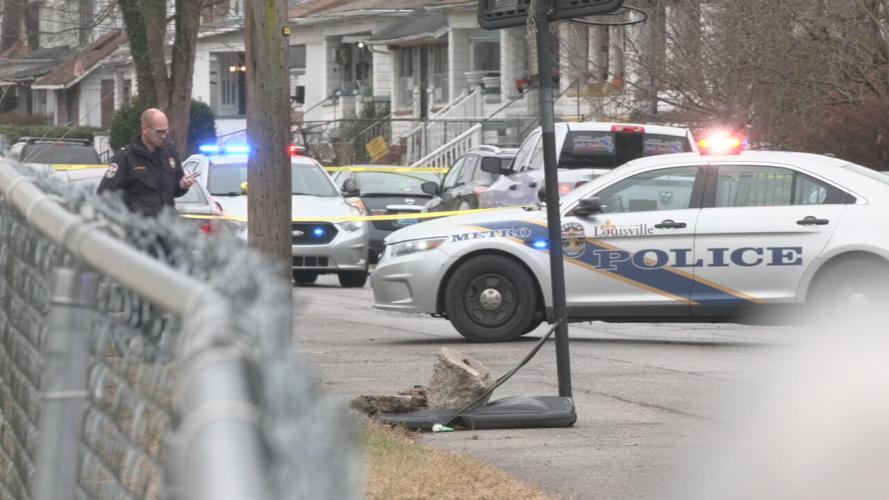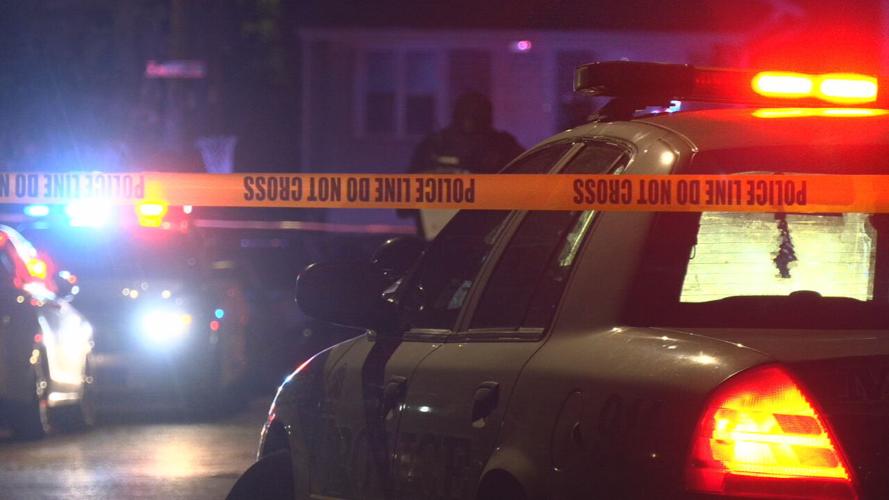LOUISVILLE, Ky. (WDRB) -- A year-old program that sends certain 911 calls to non-police response is expanding in Louisville, the city announced Tuesday.
The Crisis Call Diversion Program (CCDP) — also known as deflection —will expand to all Louisville Metro Police Department divisions.
Former Mayor Greg Fischer announced plans for this pilot project in October 2021 after recommendations from the University of Louisville Commonwealth Institute of Kentucky (CIK). In January 2022, Louisville Metro Council approved a contract with Seven Counties Services.
Today I am proud to announce that the Crisis Call Diversion Program (CCDP/Deflection) is expanding to all LMPD divisions. This program diverts 911 calls to @SevenCounties when appropriate, providing emotional support, problem-solving, and referrals to community services. pic.twitter.com/1yOcmKJqoM
— Mayor Craig Greenberg (@LouisvilleMayor) March 21, 2023
"After the first year of this pilot program, our community has already seen enormous benefits and I’m very proud that we are able to roll it out across our entire city," Mayor Craig Greenberg said in a news release. "This program helps ensure that people in crisis are able to receive the help they need, which also allows our police to focus on preventing and solving crimes. I hope that we can continue to build on the past success of this program and continue to expand it."
Rosa Brown's son, Princeton Brown, suffers from schizophrenia, a side effect from a brain aneurysm when he was 17 years old. In 2019, he was accused of trying to carjack a woman outside a Dixie Highway restaurant.
He was punched and slammed by an officer, and then charged with resisting arrest.
"I can't even look at the video of him getting beat up," Brown said.
A prior WDRB investigation reveal parts of the citation explaining why the officer used such force didn't match what was shown on camera. Brown still worries about the next time her son suffers a mental episode.
"I don't know if my son would move the wrong way, and they're thinking that he's trying to do something," Brown said. "I don't want to have to think about all of that."
Brown is hopeful that a crisis workers can help in situations involving her son.
"I'm just hopeful and I'm praying that this will help us," Brown said. "It would take a load off my shoulders."
Greenberg said the expansion is also following recommendations noted in the recent Department of Justice report, which investigated LMPD and Louisville Metro Government. The report suggested the CCDP pilot program be expanded.
The report recommended, "the pilot program [CCDP] is a significant start and Louisville Metro could expand its reach and capacity for a behavioral health-led response to further prevent discrimination against people with behavioral health disabilities."
CCDP was initially launched in March 2022 with LMPD's Fourth Division. It was eventually expanded to LMPD's First, Second and Third divisions.
According to a news release Tuesday, CCDP has resulted in more than 600 people receiving crisis support and referrals without the involvement of LMPD officers. It's freed up an estimated 345 hours of time that could have been spent on response to those calls.
"They need a social worker, they need a trained mental health professional that can help with problem solving," Greenberg said. "It gets people the right help at the right time. And it saves police resources so that we can focus on preventing crime."
Elishia Durrett Johnson, a mental health counselor and the CEO of Begin to Talk, says the program looks good on paper.
"It makes sense. It's ambitious," Durrett Johnson said. "But is that realistically going to support our city right now?"
She says there are many communities who still do not trust police, and the connection between mental health programs and LMPD could pose a problem.
"If their perception is that this program is an extension of LMPD, which is not a trusted entity, then we may have a problem utilizing this," Durrett Johnson said.
She says the program is very needed, but for it to fully succeed, the hours must be expanded for a more consistent response. She's also hoping for more outreach to the communities that crisis workers will be responding to.
"The best version of this program is to be one that is transparent to the community, that the community trusts, that the community is engaged in, and that the community is included on the delivery of the resources directly to the community," Durrett Johnson said. "If you're trying to help us, you gotta include us."
Of the 11 people hired for the pilot program, seven will be on the mobile response team responding to initial calls, while two will be within a Behavioral Health Hub at MetroSafe to triage calls. There are also two case managers who will provide follow-up and connection to services after the calls.
CCDP will operate in all eight divisions from 2-10 p.m. every day. Seven Counties Services plans to hire more people to expand the hours of operation.
"It has been one year today since our organization has partnered with the city and our local community to connect individuals to needed resources during a mental health crisis," Jean Romano of Seven Counties Services said in a news release. "As a result, individuals who have called 911 due to a mental health crisis have received immediate support provided by some of our community’s most qualified mental health professionals. Due to the response provided by Seven Counties Services, emergency responders have been able to spend hundreds more hours serving our community where their efforts are needed the most."
Here's how the program works:
- When a caller calls into 911 from LMPD's Fourth Division, MetroSafe call takers will triage the call to determine if the call should be transferred to Crisis Triage Workers (CTW) in the new Behavioral Health Hub located within MetroSafe.
- The CTW team will function like a crisis hotline to de-escalate, provide emotional support, create a safety plan, and problem solve for the person in crisis.
- If CTW determines that a face-to-face response would be beneficial, they initiate a mobile response and trained professionals will go to the scene.
- Mobile responders will meet the person where they are to further de-escalate and assess the situation and if needed, connect that person to a service. Responders have the option to transport the person to the community respite center at Seven Counties Services or another community resource, such as a shelter.
Related Stories:
- Louisville launches pilot project to deflect some 911 calls to a non-police response
- LMPD body camera video contradicts part of the reasoning for officers' use of force in 2019 arrest
- Louisville to launch pilot for crisis intervention teams to respond to some 911 calls
- Initiative in Louisville would allow mental health, social workers to respond to some 911 calls
- New program will find better ways to respond to 911 calls outside LMPD's scope
- Jeffersontown police adding 3 social workers to support officers on mental health runs
Copyright 2023 WDRB Media. All Rights Reserved.
















